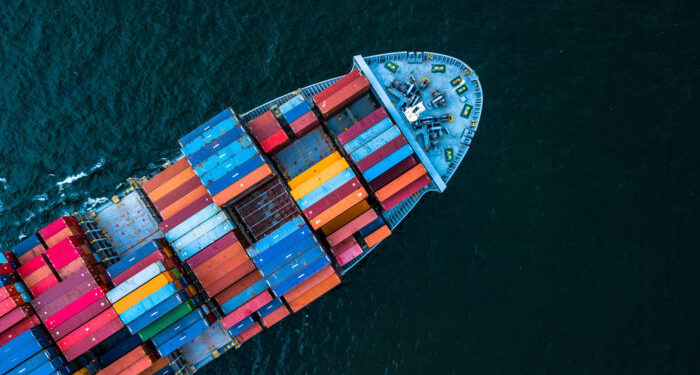IACS issued its 2020 Annual Review touching upon issues like GHG emissions, remote surveys, and cyber security as well detailed technical pieces on corrosion and stability.
The Annual Review also contains information on IACS extensive contributions to IMO and engagement with industry partners, as well as summaries of all new, revised or deleted IACS Resolutions in 2020. In addition, it includes IACS ‘Class Report’ with data on the IACS fleet.
Remote survey facts
The COVID-19 global pandemic has challenged and disrupted every aspect of normal life during 2020. Remote surveys, which some IACS Members were developing as early as 2018, became the subject of much discussion during the COVID-19 pandemic. There were some industry whisperings of many surveys going uncompleted or completed without surveyor attendance, but data collected by IACS shows this not to be the case.
In fact, during the period January-September 2020, IACS Members completed slightly more scheduled surveys (annual, intermediate, and renewal) than in the same period for 2019; and of these, less than 0.5% were completed entirely by remote means (i.e. with no onboard surveyor presence whatsoever).
Some other surveys held may have had elements delivered remotely, and ad-hoc surveys may have been delivered by remote means. IACS continues to work with industry regulators and other stakeholders on the evolution of the remote survey regime – and the experience gained during 2020 will help industry use such approaches in the future where appropriate.
Spare parts Recommendations’ review
In 1990, IACS established Recommendations 26-30 as a guide for the minimum number and type of spare parts that should be carried onboard ships for reciprocating internal combustion engines, steam turbines and essential auxiliary machinery of ships.
The 2006 revisions constituted only a partial review of the Recommendations and considering the speed of change in the industry since then a full review was proposed in 2020. Additionally, the Marine Technical Managers Association (MARTECMA) raised the following concerns with IACS, adding weight to the need to review the Recommendations:
- There are many cases where the change from 3.5% to 0.5% sulphur content fuel oil or use of marine gas fuel may have caused incidents of cylinder liner failures and cylinder oil suppliers have not been able to introduce new cylinder oil lubricants which might avoid such incidents.
- Cost competition in the declining new building market has led to design and installation onboard of auxiliary machinery based upon shore technology and not proven for marine services.
IACS Machinery Panel is working with the International Council on Combustion Engines and industry to revise the Recommendations.
IACS work on GHG emissions
As GHG emission reduction has become a key issue of widespread concern in the maritime community in recent years, in 2020 IACS participated in the working group on technical energy efficiency and operational energy efficiency led by relevant IMO Member States, providing technical support to the IMO secretariat and conducting research together with the industry.
IACS conducted an analysis of the proposed ‘hybrid’ short-term measures and submitted proposals to the IMO Intersessional Meeting of the Working Group on Reduction of GHG Emissions from Ships (ISWG-GHG 7) on the feasibility of the measures and potential difficulties related to implementation.
IACS’ recommendations concerning the implementation of the hybrid measure attracted the attention of many delegations and received significant support from Member States and industry organisations for its technical input and interventions at ISWG-GHG 7.
In addition, IACS said it will continue to draw on its Members’ expertise in advising on the development of IMO guidelines for EEXI and CII, as well as for the Ship Energy Efficiency Management Plan and other related procedures, providing technical support from the perspective of implementation.
In 2020, IACS also actively participated in meetings and technical discussions of the European Sustainable Shipping Forum’s group on ship energy efficiency and provided technical opinions for consultations on relevant alternative fuel legislative initiatives from the EU. It could be noted that there are certain differences between the EU’s strategic goals and IMO’s GHG emission reduction targets, and the potential effect of regional measures the EU intends to develop on the IMO’s global emission reduction measures is unclear. However, relevant emission reduction measures have the overarching aim of meeting the temperature control goal of the Paris Agreement.
Although IACS has always supported the establishment of a global GHG emission reduction mechanism through the IMO – and considers that the high level IMO agreement and its implementation should be sufficient to avoid any future regional measures – IACS will continue to provide its technical expertise and advice for the development and consistent implementation of global or important regional measures from a technical perspective.






























































